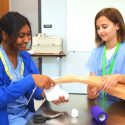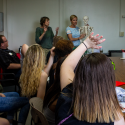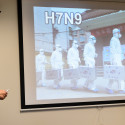Students prepare for healthcare careers in UW summer physiology course
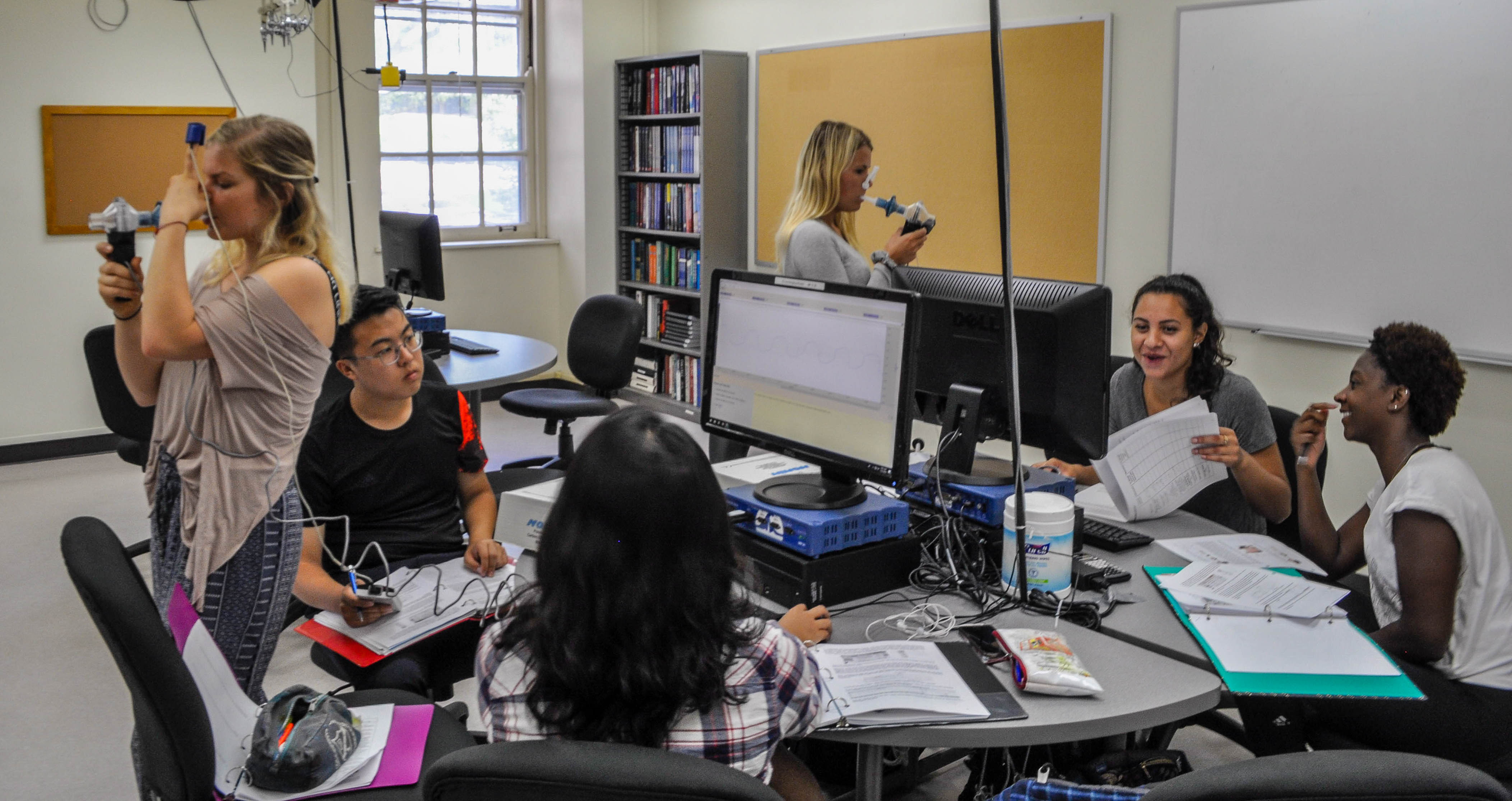
In Physiology 335, students capture and analyze data from their own bodies using computer software and electrode wires. Sinclair Richards
For those aspiring to be health care professionals, understanding the fundamentals of the human body is essential. A Summer Term course is helping UW–Madison students form that foundation.
John Kink, a rising senior studying microbiology, sees Physiology 335 as a gateway to his career as a physician’s assistant. The course is also a prerequisite for a wide variety of basic science and pre-clinical majors, making it very popular with nearly 100 students enrolled in the class.
The course’s three formats — lab, discussion and lecture — allow students to dive into all of the major systems of the human body from the cellular level to the organ-system level.
“This is one of the most fundamental human physiology courses that you can take compared to other undergraduate courses,” says Dr. Grace Lee, the course’s lab instructor. “It’s a breadth of almost every single system in the human body.”
Students apply material they learn in lecture to the lab and discussion, she says, which is helpful in preparing them for careers in the health sciences. According to Kink, the labs are especially “hands-on, engaging and interactive.”
By attaching electrode wires onto themselves, students are able to study the electrical activity happening inside of their own bodies. Lee says this not only helps students learn the underlying properties of the human body, but also prompts them to develop professional skills that are transferable to future careers.
“Because they’re working in teams of three or four people, they’re held accountable to come to lab, develop teamwork skills, communicate with one another and treat each other in a respectful way,” she says. “Those lessons are going to carry over into health care.”
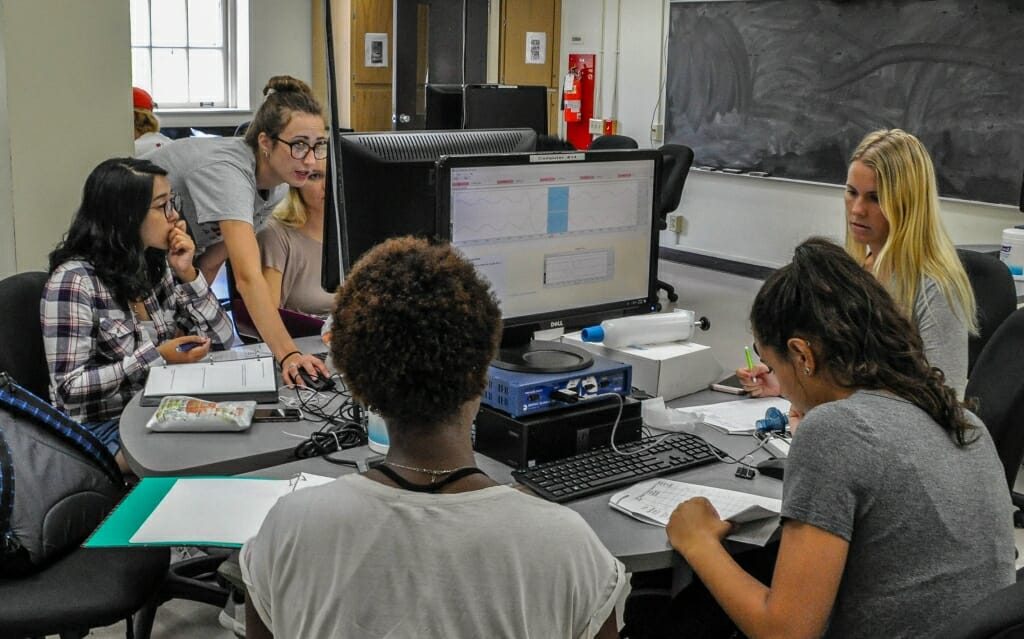
The Physiology 335 lab is facilitated by a group of teaching assistants who lead and instruct students during the activities. Sinclair Richards
Lee says the class also prompts students to apply what they learn in class to their own health. By gaining a better knowledge of the body’s systems, students can “start making educational decisions about how they’re going to take care of themselves.”
Kink, in particular, is a testament to the impact that the course material has on its students.
“I definitely now have a better understanding of how my body works,” he says. “I’m able to make better health decisions on my own and this will later help me in my career as a physician’s assistant.”
While taking away conceptual information about the body is important to the course, Lee says there is ultimately a life philosophy to be learned as well. In a field where there is high pressure to be perfect, she hopes students can learn from their mistakes.
“In this class, it’s not about perfection,” Lee says. “It’s about progression.”
Though the class is challenging, she says students can arrive with the mentality that they’re going to learn something no matter what. And according to Kink, that is certainly true.
“There are lessons to be learned here that can apply to any realm,” he says. “That’s what makes this so important.”
Tags: courses, health & medicine, health care, learning, physiology, research, student life, summer

